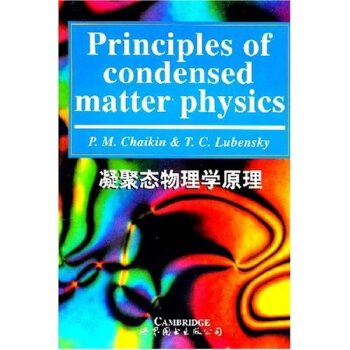![量子光学基础(第4版) [Elements of Quantum Optics]](https://pic.windowsfront.com/10516008/7ee52b30-a7a9-4a9e-ac3e-9ca05db061e0.jpg)

具体描述
内容简介
This book grew out of a 2-semester graduate course in laser physics and quan-tum optics. It requires a solid understanding of elementary electromagnetismas well as at least one, but preferably two, semesters of quantum mechanics.内页插图
目录
Classical Electromagnetic Fields1.1 Maxwells Equations in a Vacuum
1.2 Maxwells Equations in a Medium
1.3 Linear Dipole Oscillator
1.4 Coherence
1.5 Free-Electron Lasers
Problems
Classical Nonlinear Optics
2.1 Nonlinear Dipole Oscillator
2.2 Coupled-Mode Equations
2.3 Cubic Nonlinearity
2.4 Four-Wave Mixing with Degenerate Pump Frequencies
2.5 Nonlinear Susceptibilities
Problems
Quantum Mechanical Background
3.1 Review of Quantum Mechanics
3.2 Time-Dependent Perturbation Theory
3.3 Atom-Field Interaction for Two-Level Atoms
3.4 Simple Harmonic Oscillator
Problems
Mixtures and the Density Operator
4.1 Level Damping
4.2 The Density Matrix
4.3 Vector Model of Density Matrix
Problems
CW Field Interactions
5.1 Polarization of Two-Level Medium
5.2 Inhomogeneously Broadened Media
5.3 Counterpropagating Wave Interactions
5.4 Two-Photon Two-Level Model
5.5 Polarization of Semiconductor Gain Media
Problems
6 Mechanical Effects of Light
6.1 Atom-Field Interaction
6.2 Doppler Cooling
6.3 The Near-Resonant Kapitza-Dirac Effect
6.4 Atom Interferometry
Problems
Introduction to Laser Theory
7.1 The Laser Self-Consistency Equations
7.2 Steady-State Amplitude and Frequency
7.3 Standing-Wave, Doppler-Broadened Lasers
7.4 Two-Mode Operation and the Ring Laser
7.5 Mode Locking
7.6 Single-Mode Semiconductor Laser Theory
7.7 Transverse Variations and Gaussian Beams
Problems
Optical Bistability
8.1 Simple Theory of Dispersive Optical Bistability
8.2 Absorptive Optical Bistability
8.3 Ikeda Instability
Problems
9 Saturation Spectroscopy
9.1 Probe Wave Absorption Coefficient
9.2 Coherent Dips and the Dynamic Stark Effect
9.3 Inhomogeneously Broadened Media
9.4 Three-Level Saturation Spectroscopy
9.5 Dark States and Electromagnetically Induced Transparency
Problems
10 Three and Four Wave Mixing
10.1 Phase Conjugation in Two-Level Media
10.2 Two-Level Coupled Mode Coefficients
10.3 Modulation Spectroscopy
10.4 Nondegenerate Phase Conjugation by Four-Wave Mixing
Problems
11 Time-Varying Phenomena in Cavities
11.1 Relaxation Oscillations in Lasers
11.2 Stability of Single-Mode Laser Operation
11.3 Multimode Mode Locking
11.4 Single-Mode Laser and the Lorenz Model
Problems
Coherent Transients
12.1 Optical Nutation
12.2 Free Induction Decay
12.3 Photon Echo
12.4 Ramsey Fringes
12.5 Pulse Propagation and Area Theorem
12.6 Self-Induced Transparency
12.7 Slow Light
Problems
Field Quantization
13.1 Single-Mode Field Quantization
13.2 Multimode Field Quantization
13.3 Single-Mode Field in Thermal Equilibrium
13.4 Coherent States
13.5 Coherence of Quantum Fields
13.6 Quasi-Probability Distributions
13.7 SchrSdinger Field Quantization
13.8 The Gross-Pitaevskii Equation
Problems
Interaction Between Atoms and Quantized Fields
14.1 Dressed States
14.2 Jaynes-Cummlngs Model
14.3 Spontaneous Emission in Free Space
14.4 Quantum Beats
Problems
System-Reservoir Interactions
15.1 Master Equation
15.2 Fokker-Planck Equation
15.3 Langevin Equations
15.4 Monte-Carlo Wave Functions
15.5 Quantum Regression Theorem and Noise Spectra
Problems
Resonance Fluorescence
16.1 Phenomenology
16.2 Langevin Equations of Motion
16.3 Scattered Intensity and Spectrum
16.4 Connection with Probe Absorption
16.5 Photon Antibnnching
16.6 Off-Resonant Excitation
Problems
Squeezed States of Light
17.1 Squeezing the Coherent State
17.2 Two-Sidemode Master Equation
17.3 Two-Mode Squeezing
17.4 Squeezed Vacuum
Problems
Cavity Quantum ElectrodynAmlcs
18.1 Generalized Master Equation for the Atom-Cavity System
18.2 Weak Coupling Regime
18.3 Strong Coupling Regime
18.4 Velocity-Dependent Spontaneous Emission
18.5 Input-Output Formalism
Problems
Quantum Theory of a Laser
19.1 The Micromaser
19.2 Single Mode Laser Master Equation
19.3 Laser Photon Statistics and Linewidth
19.4 Quantized Sidemode Buildup
Problems
Entanglement, Bell Inequalities and Quantum Information
20.1 Einstein-Podolsky-Rosen Paradox and Bell Inequalities
20.2 Bipartite Entanglement
20.3 The Quantum Beam Splitter
20.4 Quantum Teleportation
20.5 Quantum Cryptography
20.6 Toward Quantum Computing
Problems
References
Index
精彩书摘
In this book we present the basic ideas needed to understand how laser lightinteracts with various forms of matter. Among the important consequencesis an understanding of the laser itself. The present chapter summarizes clas-sical electromagnetic fields, which describe laser light remarkably well. Thechapter also discusses the interaction of these fields with a medium con-sisting of classical simple harmonic oscillators. It is surprising how well thissimple model describes linear absorption, a point discussed from a quantummechanical point of view in Sect. 3.3. The rest of the book is concernedwith nonlinear interactions of radiation with matter. Chapter 2 generalizesthe classical oscillator to treat simple kinds of nonlinear mechanisms, andshows us a number of phenomena in a relatively simple context. Starting withChap. 3, we treat the medium quantum mechanically. The combination of aclassical description of light and a quantum mechanical description of matteris called the semiclassical approximation. This approximation is not alwaysjustified (Chaps. 13-19), but there are remarkably few cases in quantum op-tics where we need to quantize the field.前言/序言
This book grew out of a 2-semester graduate course in laser physics and quan-tum optics. It requires a solid understanding of elementary electromagnetismas well as at least one, but preferably two, semesters of quantum mechanics.Its present form resulted from many years of teaching and research at theUniversity of Arizona, the Max-Planck-Institut fiir Quantenoptik, and theUniversity of Munich. The contents have evolved significantly over the years,due to the fact that quantum optics is a rapidly changing field. Because theamount of material that can be covered in two semesters is finite, a numberof topics had to be left out or shortened when new material was added. Im-portant omissions include the manipulation of atomic trajectories by light,superradiance, and descriptions of experiments.用户评价
我是一位有着多年教学经验的物理学教授,一直致力于将量子力学和光学领域的前沿知识融入教学中。当我看到《量子光学基础(第4版)》这本书时,我立刻被它所吸引。这本书不仅在理论深度上达到了国际领先水平,而且在内容的组织和教学方法上都进行了优化,使其更符合当前大学物理教育的需求。我翻阅了其中的章节,发现它对量子相干性、量子噪声、量子计量学等关键概念的阐述非常清晰透彻,同时还引入了许多最新的研究进展,如量子信息处理、量子通信等。这本书的数学推导过程严谨而富有启发性,能够帮助学生扎实掌握量子光学理论,并培养他们的独立思考能力。我期待这本书能够成为我教学的有力助手,为培养下一代优秀的量子光学人才贡献力量。
评分我是一名资深的量子信息研究者,对于量子光学领域的研究已经有十多年的经验。这次偶然看到了《量子光学基础(第4版)》这本书,其厚重的纸张和精美的装帧立刻吸引了我。我了解到这本书在前几版的基础上进行了更新,尤其是在量子纠缠和量子通信的应用方面,让我对此书的价值更加期待。我翻阅了其中的章节,发现它不仅对经典的量子光学理论进行了深入的阐述,还融入了近年来的一些最新研究成果,比如量子相干态的制备和操纵,以及量子态的表征和度量等方面。这对于我这样的研究者来说,无疑是一份宝贵的资料。我尤其关注书中对量子测量理论的深入探讨,这对我理解和优化实验设计至关重要。希望这本书能够为我提供新的视角和研究思路,帮助我在量子信息领域取得新的突破。
评分作为一名对物理学充满好奇心的本科生,我常常被那些听起来“高大上”的领域所吸引,量子光学便是其中之一。这本书的封面设计充满了科技感,金属质感的字体和深邃的蓝色背景,让我觉得它蕴含着无穷的奥秘。我一直对“量子”这个词感到着迷,想知道光是如何在微观世界里表现出如此奇特的行为的。我希望这本书能用相对易懂的方式,向我介绍量子光学的基础概念,比如光的粒子性和波动性如何统一,什么是光子,以及光子是如何被探测和操控的。我希望它能够激发我对这个领域的兴趣,让我能够理解一些基础的量子光学实验,比如光子的产生、分束器的作用等等。虽然我还没有深入阅读,但我相信这本书能够为我打开一扇通往量子世界的大门,让我对这个奇妙的学科有一个初步的认识,并为我未来的学习指明方向。
评分作为一个刚入门量子光学领域的学生,我一直在寻找一本既能系统介绍基础知识,又能启发思考的教材。这本书的封面设计虽然朴实,但“量子光学基础”这几个字却显得格外醒目,让我感受到它作为一本基础性读物的自信。我翻看了几页,发现它的语言风格比较清晰,没有过多的华丽辞藻,而是直击核心概念。我尤其对其中关于光子态的描述感到好奇,书里似乎用了相当的篇幅来讲解光子的叠加态和测量过程,这对我理解量子力学的奇特性质至关重要。我希望能通过这本书,构建起对量子光学比较完整的认知框架,理解光与物质在量子层面是如何相互作用的,比如受激辐射、光子晶体等等。虽然我还没有深入阅读,但从初步的浏览来看,这本书应该能够帮助我理解那些在教科书中显得抽象难懂的量子概念,并为我后续更深入的学习打下良好的基础,让我对未来的学习方向更加明确。
评分这本书的包装设计就很有分量,深蓝色的封面上烫金的“量子光学基础”几个字,在灯光下熠熠生辉,给我一种严谨、深邃的感觉。我买这本书的初衷,是想在本科毕业设计中深入研究激光与物质的相互作用,所以对于这本书的理论深度和前沿性有着很高的期待。我特意翻阅了目录,看到里面涵盖了相干性理论、量子纠缠、量子测量等核心概念,这些都是我进行深入研究必须掌握的知识点。同时,我也注意到书中会涉及大量的数学推导,这让我既兴奋又有些忐忑,毕竟数学工具的掌握程度直接影响到我能否真正理解和运用这些理论。我希望能在这本书中找到清晰的理论讲解和严谨的数学证明,为我的研究打下坚实的基础。我期待这本书能够引领我进入量子光学更广阔的世界,让我能更好地理解那些令人惊叹的量子现象,并将其应用于实际的科研工作中。
评分很不错的一本书,物流速度很快。
评分喜欢,会一直在京东购书“我只要在搜索框内输入书名、作者,就会有好多书摆在我面前供我挑选,价格方面还可以打折,这样便捷与优惠的购书方式我怎么可能不选择呢!”经常在网上购物的弟弟幸福的告诉我。据调查统计,当前网上书店做得较好的的网站有京东等。现在大街小巷很多人都会互相问候道:“今天你京东了吗?”,因为网络购书已经得到了众多书本爱好者的信任,也越来越流行。基于此,我打开网页,开始在京东狂挑书。本来我这个地区就没货 所以发货就晚了。但是书真的不错 只要发货就很快就到,应该是正品 至少录音啊 词语没有错,快递很快哦 继续努力,书已经送给门卫签收,不过快递员还打电话通知我,这样的服务态度真的值得其他的快递员学习,东京快递真的不错。在我还没有看这本书的时候,我丝毫不怀疑它是一本好书,很符合80后读者的口味。很难想象一本图书会被我看得像郭德纲的相声书一样,在地铁上都如饥似渴地手不释卷。人都说《红楼梦》是一部罕见的奇书,是人生的镜子,那么对于这部书,在某种意义上也令我感到了丝丝“找出心中所想”的意味,因为我不仅从中看出大论的味道,更是以一种看搞笑图书的心情在愉悦自己,事实上这本书确实不失幽默,在大论了一把之后确实愉悦了广大读者,在此之前,我从来没想过会像一本幽默小说一样去看这本书,因为多年来这类书的泛滥使我对其十分不屑。京东商城图书频道提供丰富的图书产品,种类包括小说、文学、传记、艺术、少儿、经济、管理、生活等图书的网上销售,为您提供最佳的购书体验。网购上京东,省钱又放心!在网上购物,动辄就要十多元的运费,往往是令许多网购消费者和商家踌躇于网购及销售的成本。就在买方卖方都在考虑成本的同时,京东做了一个表率性的举动。只要达到某个会员级别,不分品类实行全场免运费。这是一个太摔的举动了,支持京东。好了,现在给大家介绍两本好书:被美国学界誉为“思想巨匠”和“最具前瞻性的管理思想家”的史蒂芬·柯维博士,他的集大成之作《高效能人士的七个习惯》已成为中国企事业单位和政府机关必备的最经典、最著名的一部培训教材;在美国乃至全世界,史蒂芬·柯维的思想和成就,与拿破仑·希尔、戴尔·卡耐基比肩。《高效能人士的7个习惯(20周年纪念版)》在每一章最后增加了一个“付诸行动”版块,精选柯维培训课程中的实践训练习题,以帮助读者加深对“七个习惯”的理解和掌握,使“七个习惯”成为属于每个人自己的行动指南,价值堪比18000元的柯维现场培训课。史蒂芬·柯维被美国《时代周刊》评为“20世纪影响美国历史进程的25位人物”之一,他是前总统克林顿倚重的顾问,《财富》杂志100强中的90%和500强中的75%的企业是他的直接受教者,AT&T、通用电子、全禄、可口可乐等大公司的高级主管都是他的学生,李开复等中国顶尖的企业家和管理者也深受其思想的启发。每年,来自全球的个人、家庭、企业、教育界及政府领导者的受教生更是高达百万人之多。东东枪和地下天鹅绒是两位在博客、微博、专栏里都非常受读者喜爱的作家,两人思维跳跃,观点奇特新颖,对待感情,他们也细细琢磨,也插科打诨。同在滚滚红尘中摸爬滚打,两位勇士将他们对两性情感的所感所悟一一精彩呈现,得此《鸳鸯谱》,闪着智慧幽默的光。鸳鸯谱,靠谱。
评分看起来还不错
评分帮别人买的,便宜……
评分这本书写的好!用的挺棒哒!
评分量子光学的参考书,可以补充一下课本。。
评分内容详实,很好!
评分另一条接近的道路是玻尔的互补概念。薛定谔已经不把原子描述为一个原子核和电子的系统,而把它描述为一个原子核和一些物质波的系统。这种物质彼图象当然也包含一个真理的因素。玻尔把两种图象——粒子国象和波动图象——看作是同一个实在的两个互补的描述。这两个描述中的任何一个都只能是部分正确的,使用粒子概念以及波动概念都必须有所限制,否则就不能避免矛盾。如果考虑到能够以测不准关系表示的那些限制,矛盾就消失了。
评分In this book we present the basic ideas needed to understand how laser lightinteracts with various forms of matter. Among the important consequencesis an understanding of the laser itself. The present chapter summarizes clas-sical electromagnetic fields, which describe laser light remarkably well. Thechapter also discusses the interaction of these fields with a medium con-sisting of classical simple harmonic oscillators. It is surprising how well thissimple model describes linear absorption, a point discussed from a quantummechanical point of view in Sect. 3.3. The rest of the book is concernedwith nonlinear interactions of radiation with matter. Chapter 2 generalizesthe classical oscillator to treat simple kinds of nonlinear mechanisms, andshows us a number of phenomena in a relatively simple context. Starting withChap. 3, we treat the medium quantum mechanically.
相关图书
本站所有内容均为互联网搜索引擎提供的公开搜索信息,本站不存储任何数据与内容,任何内容与数据均与本站无关,如有需要请联系相关搜索引擎包括但不限于百度,google,bing,sogou 等,本站所有链接都为正版商品购买链接。
© 2026 windowsfront.com All Rights Reserved. 静流书站 版权所有

![数学·统计学系列:立体几何技巧与方法 [Techniques and Methods for Solid Geometry] pdf epub mobi 电子书 下载](https://pic.windowsfront.com/11492062/53f2c171N3d2a49ed.jpg)


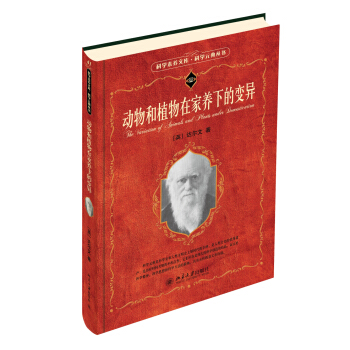




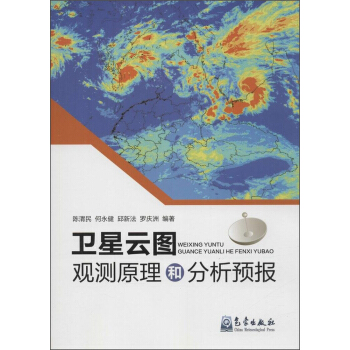
![现代动力系统理论导论 [Introduction to the Modern Theory of Dynamical Systems] pdf epub mobi 电子书 下载](https://pic.windowsfront.com/10888247/83f4e6dd-457b-4ba7-8dd5-7a2e13453591.jpg)
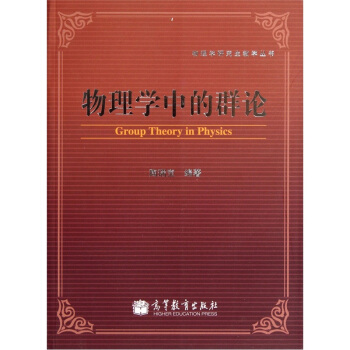


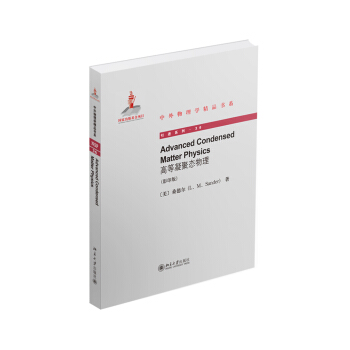
![朴素集合论 [Naive Set Theory] pdf epub mobi 电子书 下载](https://pic.windowsfront.com/10096469/4815a1ff-066e-4780-9ac2-ebf51237a8be.jpg)



